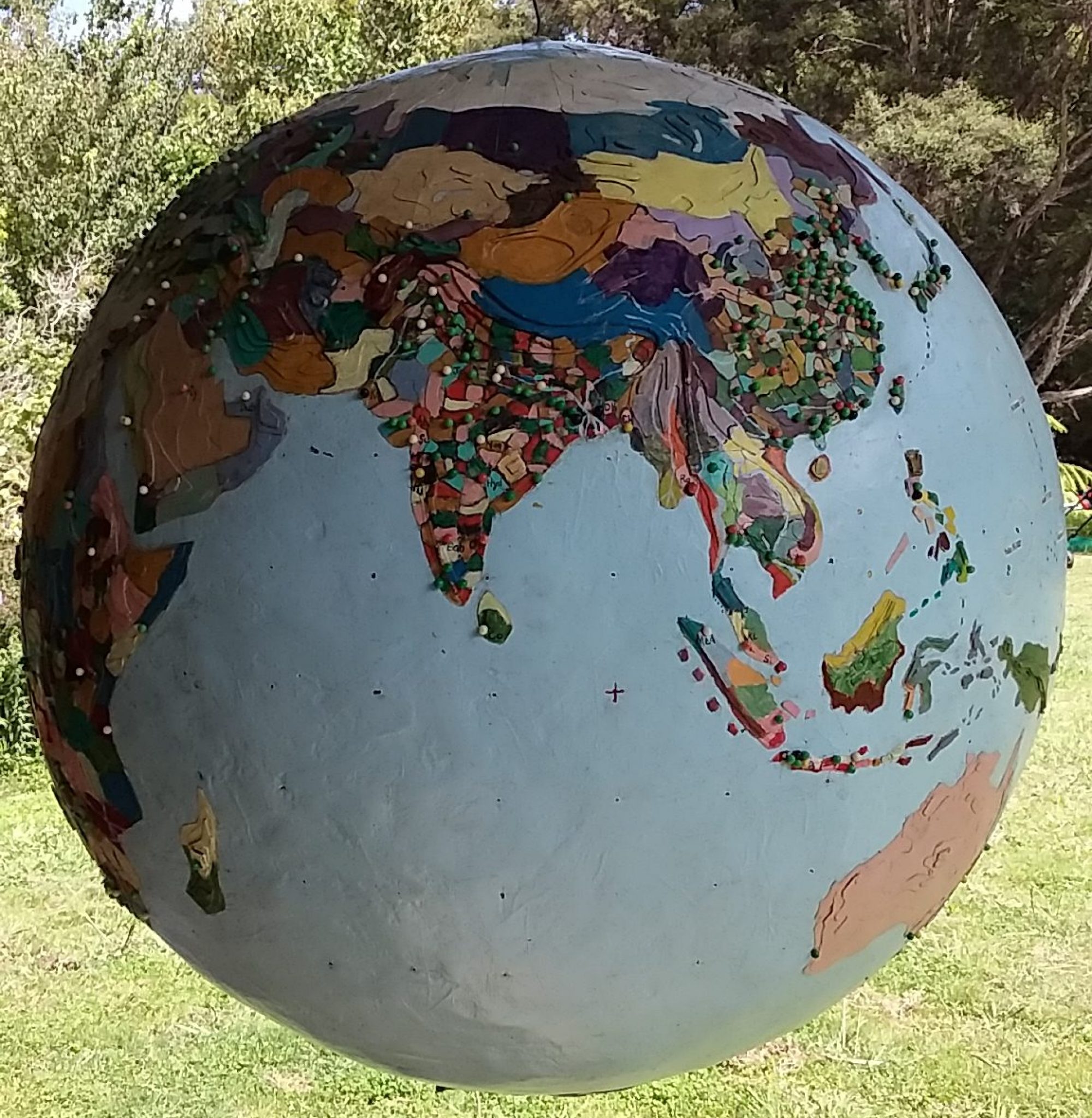I call this millisphere Malang after the largest city in the southern East Java. The millisphere of Malang (nearing ten million, mostly Javanese) includes Malang City (0.8 million) and Batu, Bitar, Kediri, Pacitan, Ponorogo, Trenggalek and Tulungagung cities and regencies.
About ten years ago I went there for no other reason than Malang was where, during World War II, the Japanese occupying forces had captured my grandparents and sent the women and children to a camp in Semarang and my grandfather to Bandung, where he nearly died.
Wanting to follow the route my ancestors took, by the Java Sea, we had crossed from Singapore to the Riau Islands in Indonesia and into another world. At Tanjung Pinang we bought tickets and at Kijang we caught a Pelni government ferry to Surabaya, via Jakarta. Over the next two days and one night we learned that most of the other passengers were Indonesian immigrants, who had been arrested in Malaysia and who were being sent home to Java.
In the Midday heat, at Surabaya wharf, we were drafted off from our fellow travellers, who were loaded onto army trucks, and we set off by taxi to the bus station with a new friend from the ferry. Jacob gave us our first lesson about catching buses in Indonesia; just get on and as soon as the bus is full it leaves; there will be a conductor and you pay, in cash, on the road; watch out for the buskers on the buses, they are crooks, but always pay them, but only a little amount, we were informed.
Soon the full bus to Malang was barrelling down the Surabaya southern motorway, for about an hour, before the highway disappeared into a sea of mud at Porong, where, a year earlier, a mud volcano, had started erupting. An Indonesian oil and gas drilling company, PT Lapindo Brantas, had been drilling nearby and, many believe, caused the break-out of pressurised mud. PT Lapindo is owned by Golkar Party chairman and Indonesian rich lister, Aburizal Bakrie, who still denies responsibility. 30,000 people were displaced by the mud. Some locals are cashing in on “mud tourism” as Indonesians come to see the world’s largest mud volcano and still no one has been compensated.
Our detoured bus wound through the congested main streets of little towns before Jacob told the driver to drop us at a crossroads. Dusk was falling rapidly, but, don’t worry, motorbike taxis would turn up and take us to Trawas, Jacob assued. He was right. Soon we were weaving down the centre line, with no crash helmets, passing trucks and vans. The air was warm and you could smell the tropics.
The people at the PPLH Seloliman environment centre/backpackers were astonished that we made it so fast from the midday ferry.The next day was Indonesian independence day and we were dressed as Indonesians and we shouted Merdeka (freedom) along with Indonesian Greenies from Surabaya.
Further up the volcano were, spring fed, ancient Hindu, stone bathing pools, divided between men. The pools contained a gaggle of Javanese transvestites, who made much ado about my white shin, but fortunately they were just leaving. Javanese volcanic soil and tropical climate produces spectacular growth and I observed that the local farmers were even better gardeners than the Greenies at the eco-centre.
The taxi to Malang, slowly passed marching lines of brightly uniformed school girls and we arrived in the centre of town as the parade reached the town hall. There were lots speeches and tan police uniforms and military marching bands and red and white flags flew everywhere.
The latest news from Malang is that 41 of the 45 members of the Malang City Council had been suspended by the government anti-corruption commission for taking bribes paid out by the former Malang mayor.
After a day of self-touring we lucked into Mollys, the Malang community art worker. We witnessed a live broadcast of Malang buskers at a radio station and a rock band at a trade show where we had to shake hands with smiling people in tan uniforms and it was Mollys who guided me to the stream under the main road where children swam, just like in my father’s youth. I paused to sketch the scene before being asked to leave – the women wanted to bath.

